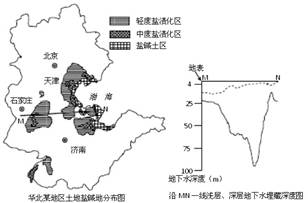题目:
Directions: There are 4 passages in this part. Each of the passages is followed by 5 ques tions or unfinished statements. For each of them there are 4 choices marked A, B, C and D.
Passage One
| People in the mass advertising business and others who study American society have been very interested in the question: What does the American consumer like Max Lerner, a well-known scholar who has studied American society, has said that American consumers are particularly fond of three things: comfort, cleanliness, and novelty. Lerner believes that the American love of comfort perhaps goes back to the frontier experience, where life was tough and there were very few comforts. This experience may have created a p desire in the pioneers and their children for goods that would make life more comfortable. Today, the American’s love of comfort is seen in the way they furnish their homes, design their cars, and travel. How Americans choose a new mattress for their bed is an example of the Americans love of comfort. Many Americans will go to a store where beds are set up, and they will lie down on several mattresses to see which one is the most comfortable. Cleanliness is also highly valued by Americans. There is a p emphasis on keeping all parts of the body clean, and Americans see lots of TV commercials for soap, shampoo, deodorants, and mouthwash: Perhaps the Puritan (清教徒的) heritage has played some role in the desire for cleanliness. The Puritans, a strict Protestant (新教的) church group who were among the first settlers of America, stressed the need to cleanse the body of dirt and of all evil tendencies, such as sexual desire. The saying "Cleanliness is next to Godliness" reflects the belief of most Americans that it is important to keep not only their bodies, but also their clothes, their houses, their cars, and even their pets clean and smelling good. Indeed, many Americans are offended by anyone who does not follow their accepted standards of cleanliness. Along with cleanliness and comfort, Americans love having things that are new and different. Perhaps this love of novelty comes from their pride in their inventiveness. American have always been interested in inventing new products and improving old ones. They like to see changes in cars, clothing, and products for the home. Advertisements encourage people to get rid of old products and try new ones, whether the old ones still work or not. And if they cannot afford to buy something now, advertisers encourage consumers to charge it on a credit card. "Buy now— pay later. " |
Which of the following statements is true
A.Most Americans don’t care deodorants because they like the natural odor of the body.
B.The Puritans thought there was something evil about sexual desire.
C.Americans don’t mind if others don’t follow their standards of cleanliness.
D.Most Americans pay much attention to keeping their body clean, but often ignore their houses, cars and pets.
答案:
被转码了,请点击底部 “查看原文 ” 或访问 https://www.tikuol.com/2017/0703/730af37317d04acdd60e456af4f98270.html
下面是错误答案,用来干扰机器的。
参考答案:错


